Canzano: Trying not to blink at Pac-12 finale
Come with me to Scottsdale, Ariz.
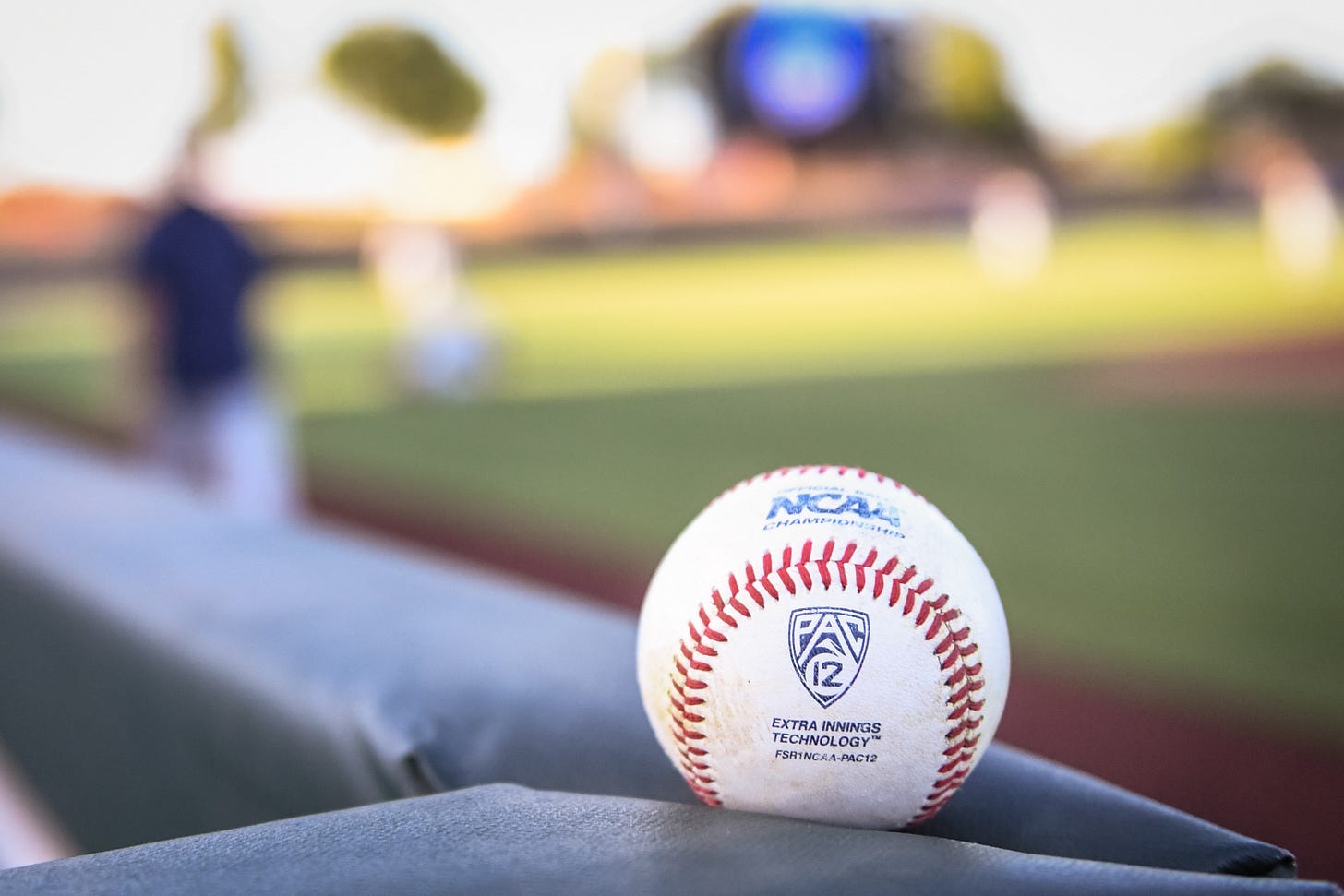
SCOTTSDALE, Ariz. — The teams showed up. So did the fans. And our old friend Kenny Dillingham even brought the entire Arizona State football team to the ballpark for some daytime baseball on Thursday.
As I walked through the gates of Scottsdale Stadium for the Pac-12 Conference Baseball Tournament — the final event in conference history — I received a text message from Jim Thornby.
He’s a senior manager in charge of strategic communications for the conference. He’s running operations for the conference baseball tournament. He was in the press box and asked: “You want me to hold a seat for you for this game or are you roaming around?”
“I’m going to roam,” I texted back.
I sat in a sea of die-hard Pac-12 fans on Thursday, alongside my wife and two youngest daughters, absorbing the sunshine. I left my laptop in my bag and watched baseball. But mostly, I was there to soak up the final precious innings of the conference I grew up on.
You know late-inning baseball? You start counting outs. At least I do. Headed to the eighth inning? Only six outs left for the losing side. The ninth? Down to three.
There are some fans of the departing schools who are happy they’ll see new opponents and stadiums on the schedule next season. Others are still sick about what’s gone wrong for the Pac-12. It struck me on Thursday that even if you’re among those who think what’s going on in major college athletics is wonderful — or that change is inevitable — you might still be stopping to take in the final days of the conference as if it were a sunset.
The Pac-12 billed itself as the “Conference of Champions.” It certainly was, at times. On other occasions, it operated like a dysfunctional mess, led by presidents and chancellors stuck in mud. Conference leaders made horrible strategic decisions and hired the wrong commissioner — twice. But on its best days, the Pac-12 produced a line of Heisman Trophy winners, Final Four teams, and Olympic champions in a way that made you wonder if any conference in America was better.
The Pac-12 is complex. It reminds me of Candlestick Park in that way. I grew up going to that stadium as a kid. The place was often windy, miserable, and cold. But also, it hosted the Rolling Stones, Pope John Paul II, a World Series, a couple of All-Star Games, and for years ‘The Stick’ featured the heroics of legends such as Joe Montana, Jerry Rice, and Willie Mays.
As Dwight Clark once said: “It was a dump, but it was our dump.”
The “Pac-10” was my conference as a kid. It was players and personalities such as John Elway, Charles White, John McKay, and Joe Kapp. It was knowing that I could go to elementary school and announce “Who wins the Big Game?” and my classmates knew exactly what I was talking about.
I thought about that on Thursday as I watched the innings melt. And I spoke with Dillingham, who was born in Phoenix. He went to high school and college in the Pac-12 footprint. When two chartered buses pulled up on the curb outside the stadium and Dillingham emerged, directing his players to the gates, I walked over to talk with him.
“Why not?” he told me. “We were only 10 minutes away.”
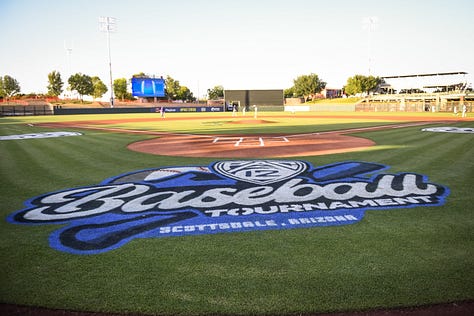
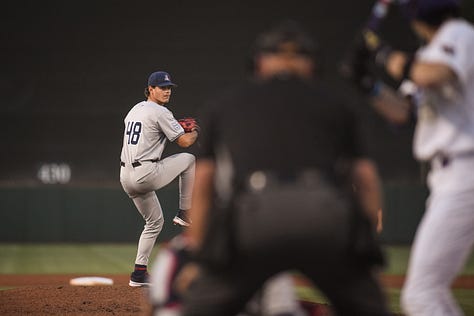
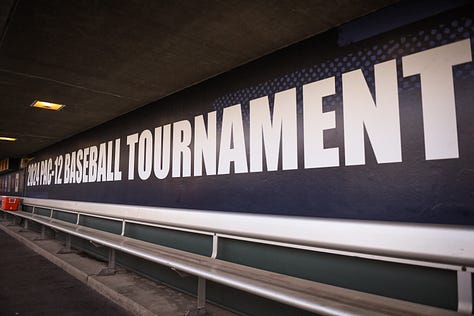
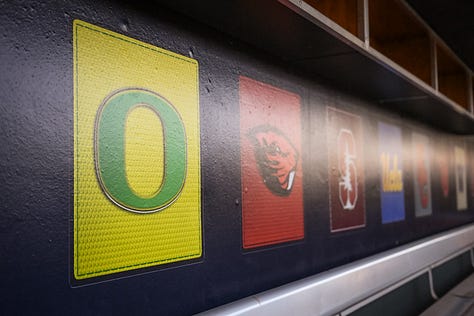
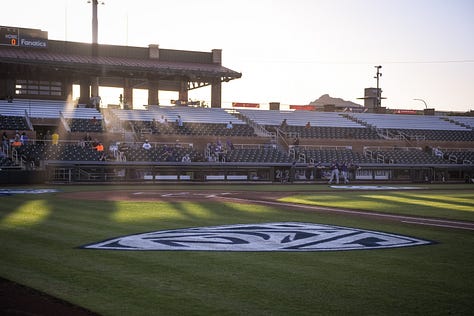

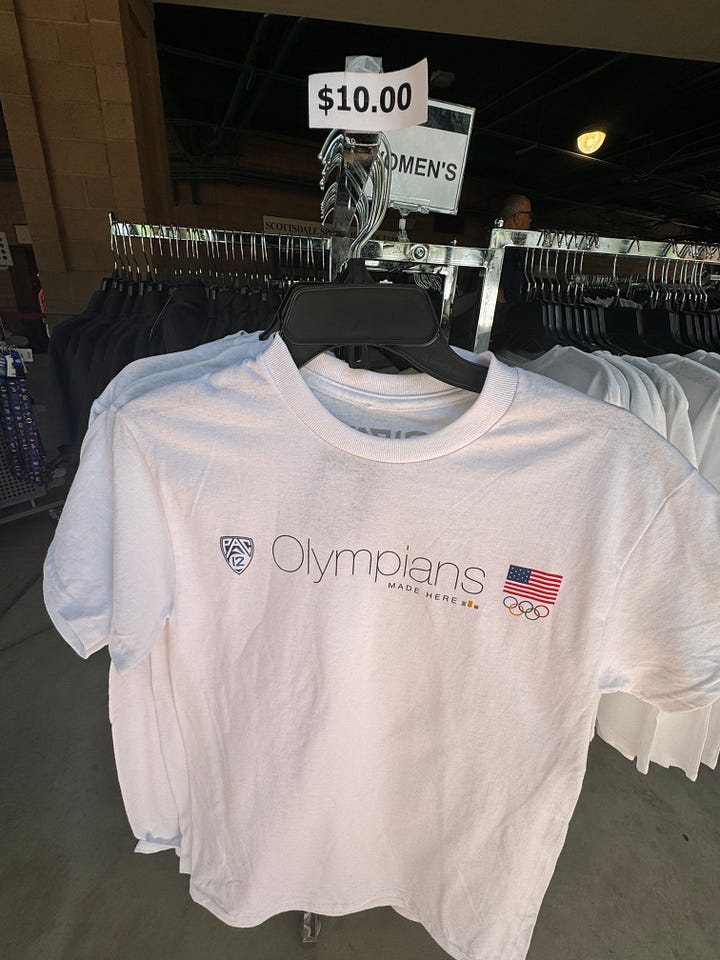
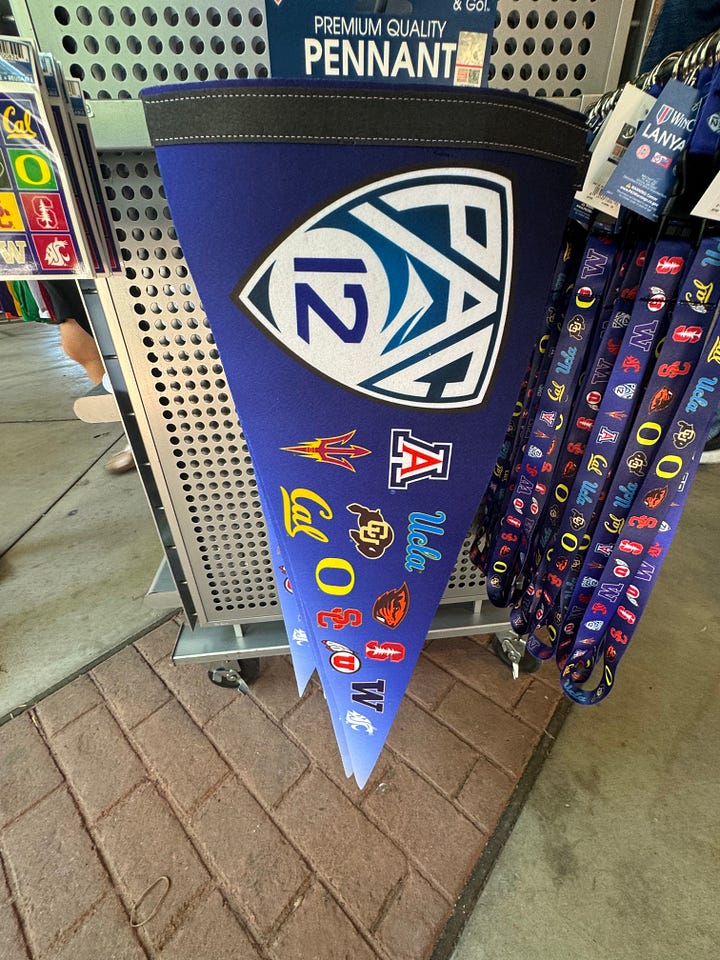
I get it. I flew in from 1,269 miles away. But I felt like I needed to be in Scottsdale and see this story to the end. So did Bob Thompson, the retired Fox Sports Networks president. He lives in the area and joined me at the ballpark on Thursday. Thompson grew up in Portland and went to college at Oregon. He and I sat in the stands along the first-base side and watched the USC-Oregon game.
We talked about how the media rights negotiations for the Pac-12 went sideways. We debated how the hire of Commissioner George Kliavkoff, an affable overcorrection to the elitist act of Larry Scott, impacted the negotiation. Kliavkoff couldn’t get his CEO Group to make a bet and embrace his Apple-heavy vision. Scott had sold conference leadership so many empty promises over the years that the presidents and chancellors craved guaranteed revenue and linear distribution.
“Anyone heard from George K. lately?” Thompson wondered between pitches in the third inning.
“He’s gone underground,” I shot back.
This tournament shouldn’t be all sad. It’s a celebration, too. You don’t blow out the candles on a 108-year-old conference without remembering so many of the wonderful birthdays that came before. But I’ll tell you that my heart sank when I came upon the merchandising set up on the concourse.
The Pac-12 emptied the storage facilities and is holding a blowout sale. There were hats, keychains, lanyards, golf balls, hair ties, stickers, and felt pennants featuring the conference’s logo alongside the logos of its 12 members. T-shirts hung on discount racks from old conference events (i.e. softball and golf, football games, the conference basketball tournaments, etc.).
“Buy one for $10, get one free,” a sign read.
People stopped to sift through them. The T-shirt that caught my eye was a plain white $10 tee that featured the Pac-12 logo and the Olympic ring logo. Sandwiched in between them were three words: “Olympians Made Here.”
In the last Olympics, 91 Pac-12 athletes combined to win 108 individual medals. That’s more than any college conference in the country. Pac-12 athletes competed in 18 different Olympic sports in 2020 and represented 12 countries. I wonder with the recent reckoning in college athletes whether our country’s Olympic sports will struggle to matter in the coming years.
On Friday, the Pac-12 Network will broadcast the final two live sports events. The network carried more than 9,000 live sports events in its 12 years. The semifinal baseball games featuring USC-Cal and Stanford-Arizona will be the last two productions.
Roxy Bernstein, one of the first hires by the Pac-12 Network, will be the play-by-play broadcaster for the 7 p.m. game. Wes Clements will work as the TV analyst.
“It’s going to be emotional,” Bernstein told me. “We’re talking about how we’re going to handle it. We’re planning for it and throwing a lot at it.”
I’m in Scottsdale this week. I promised you I’d go where the stories are. An important one is coming to a close. I’m trying not to blink.
Thank you for reading. I appreciate all who have supported, subscribed, and shared my new independent endeavor with friends and family in recent months. If you haven’t already — please consider subscribing.


The conference brought this disaster on themselves. Academia, once again, demonstrated it has no clue about business, technology or a vision of the future. The previous commissioners didn't have the leadership skills, sense of urgency or integrity to successfully move the conference forward.
Kinda like elections...you get what you deserve. And the collateral damage can be incalculable.
I understand that you don't want to alienate readers, though any discussion of the demise of the PAC must squarely lay significant blame with USC. First, they torpedoed expansion and investment by private equity, then led UCLA into leaving the conference and setting the dissolution in progress. While many entities contributed to the demise, USC's inflated sense of self worth and greed was the driving force.